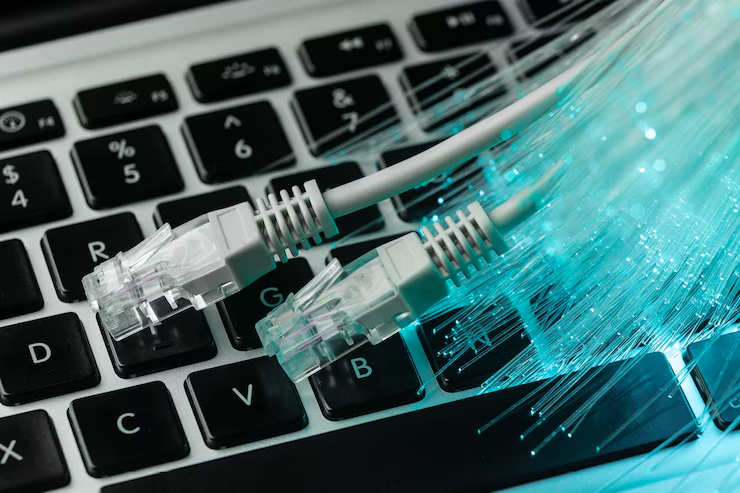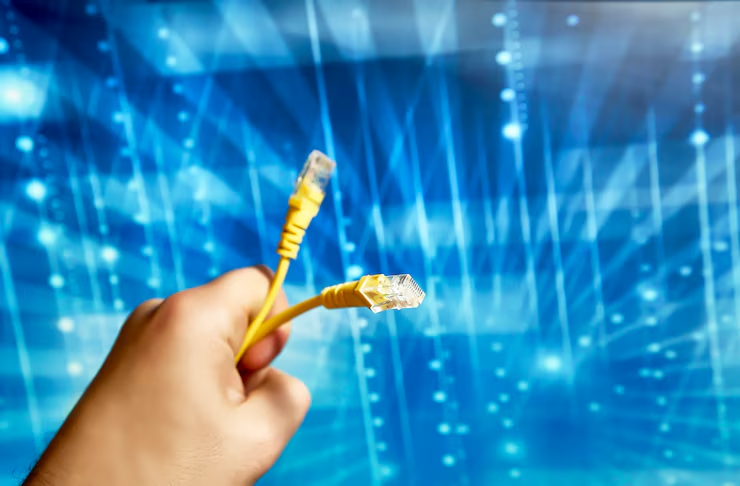Introduction
Think of your PC’s ability to connect to the internet like a car trying to reach a destination. The Right Way to Update Network Adapter Drivers. The engine is your hardware, but the GPS guiding it. That’s your network adapter driver. Without updated and functioning drivers, even the fastest network won’t save you from lag dropped connections or complete network failures. Updating your network adapter driver is one of the most effective (and often overlooked) ways to boost your connection stability and speed.
Let’s break down how to properly update these critical drivers so your digital engine never stalls again.
Understanding Network Adapter Drivers

Network Adapter Driver
A network adapter driver is software that enables your operating system to communicate with your wired or wireless network card. Without it your PC wouldnt know how to access a network or process internet data correctly.
Types of Network Adapters
Wired Adapters (Ethernet) These are physical ports on your PC connected via cables.
Wireless Adapters These allow wireless connections and are commonly used in laptops or via USB dongles.
Drivers Impact Performance
Drivers play a crucial role in the overall performance of your system especially when it comes to network connectivity. Think of drivers as the communication bridge between your hardware and operating system. If this bridge is unstable outdated or misconfigured, your hardware cant perform at its best. For network adapters this could mean dropped connections slow internet speeds or total loss of connectivity.
Outdated or corrupted drivers may fail to optimize how your device interacts with modern routers leading to reduced speed or incompatibility with newer network protocols like Wi-Fi 6. You might experience lag during online gaming buffering during streaming or disruptions in video calls all because your network adapter isn’t running with the right instructions.
On the flip side updated drivers can introduce improvements like better data handling enhanced stability and bug fixes that directly improve your internet performance. They can also close security vulnerabilities that older drivers might leave open to exploits. In short keeping your network drivers current ensures your PC communicates with the internet efficiently securely and without annoying interruptions. Always remember drivers aren’t just background files; theyre the unsung heroes powering your systems performance.
You Update Your Network Drivers
Signs It’s Time to Update
Sudden loss of connection
Frequent disconnects
Sluggish internet performance
Network not showing in Wi-Fi list
No internet access warning
Problems Caused by Outdated Drivers
Network errors during streaming or downloads
Limited or no connectivity
Compatibility issues after a Windows update
Vulnerability to security exploits
Understanding Network Adapter Drivers

Updating drivers isn’t risky, but it’s smart to have a backup plan.
Creating a System Restore Point
Before updating:
Type Create a restore point in Windows search.
Select your system drive and click Create.
Name it something like Before Network Driver Update
Exporting Your Current Drivers
Using Command Prompt
bash
Copy
Edit
dism /online /export-driver /destination:C:\DriverBackup
This creates a backup of all current drivers for future use.
Identifying Your Network Adapter
Using Device Manager
Press Win + X Select Device Manager
Expand Network Adapters
Note the name and manufacturer
Checking Adapter Details
Right-click Properties Details tab select Hardware Ids. This helps you find the exact model online.
Methods to Update Network Adapter Drivers
Using Windows Update
Go to Settings Update & Security Windows Update
Click Check for updates
Pros Easy and automated
Cons May not offer the latest drivers
Using Device Manager
Right click on your adapter
Choose “Update driver”
Select Search automatically
Good for minor updates, but not always reliable for latest versions.
Manually Downloading from Manufacturer Website
Visit Intel Realtek Broadcom or your PCs support site
Download driver that matches your exact model and OS
Run installer or use Device Manager Browse my computer
Always double-check version numbers and compatibility.
Using Third party Driver Update Tools
Popular ones include
Driver Booster
DriverPack Solution
Snappy Driver Installer
Warning Stick to reputable tools, avoid bundled adware or malware.
Avoiding Common Mistakes
Wrong driver version Always match your OS version (32/64-bit)
Skipped restart Reboot after every update
Downloaded from sketchy site? Only trust OEM and official sources
Do If the Update Fails
Rollback the Driver
Go to Device Manager
Right click Properties Driver tab Click Roll Back Driver
Use System Restore
Return to your restore point:
Search System Restore Choose your point Follow prompts
Clean Reinstall
Uninstall the adapter from Device Manager
Restart PC
Windows will reinstall basic driver or allow manual installation
Updating Network Drivers on Laptops vs Desktops
Laptops
Go to the laptop manufacturer’s site (e.g. Dell HP Lenovo)
Look up your model and download network drivers
Desktops
Desktops remain a popular choice for users who need power flexibility and long-term reliability. Whether youre a gamer content creator or someone who works with resource-heavy software desktops offer unmatched performance thanks to their ability to house high end CPUs GPUs and plenty of RAM. Unlike laptops desktops are easier to upgrade. You can swap out components like graphics cards storage drives or power supplies without much hassle making them a future-proof option for tech enthusiasts.
Another major advantage of desktops is cooling. With larger cases and better airflow options they generally run cooler and more efficiently which helps extend the life of your hardware. This is particularly important for tasks that require sustained performance like video editing or gaming sessions.
Desktops are also more customizable. You can build a system that meets your exact needs whether thats a minimalist setup for writing and web browsing or a multi GPU monster for 3D rendering. While they lack portability the performance-per-dollar ratio is often much better than laptops.
In short if raw power upgrade potential and cost effectiveness are high on your priority list desktops remain a rock solid choice in todays tech landscape.
Driver Signature Enforcement Issues
Some older drivers might not be signed causing errors.
To disable
Hold Shift while restarting
Choose Troubleshoot Advanced Startup Settings
Press F7 to disable driver signature enforcement
Re-enable later for safety!
Keeping Drivers Up-to-Date Automatically
Enable Automatic Updates
Settings Windows Update Advanced Options Enable Receive updates for other Microsoft products
Use Scheduled Third Party Scans
Using scheduled third party scans is one of the smartest ways to keep your systems drivers in check without constantly monitoring them manually. These tools like Driver Booster Snappy Driver Installe or Driver Easy can be set up to run regular scans daily weekly or monthly depending on your needs. This helps ensure your drivers are always up to date and functioning properly.
Why does this matter Outdated or missing drivers can lead to performance issues security risks and hardware malfunctions. A scheduled scan catches these problems early. Instead of you having to guess whether a sound card or network adapter driver is causing issues the software alerts you automatically and even recommends the correct updates.
Plus many of these tools create restore points before updating, which means you can safely roll back if something goes wrong. This adds an extra layer of security especially when dealing with legacy hardware or newly released driver updates.
In short scheduled third-party scans save time reduce hassle and keep your system running smoothlyalmost like having a personal driver assistant working quietly in the background. Set it and forget it and let the software do the heavy lifting.
Troubleshooting Post Update Network Issues
Reset Network Settings
Settings Network & Internet Status Network Reset
Use Network Troubleshooter
Control Panel Troubleshooting Network and Internet
Tips for Optimal Network Performance After Update
Restart your router and PC
Use a public DNS (e.g. Google DNS 8.8.8.8)
Disable unnecessary startup apps hogging bandwidth
Update router firmware too!
Conclusion
Updating your network adapter driver the right way can be the difference between seamless Zoom calls and endless buffering. While it may seem like a small task, keeping this driver current is essential for system stability, speed, and security.
Follow the safe update methods we’ve discussed whether through Device Manager, the manufacturer’s site, or third-party tools and you’ll minimize risks while maximizing performance. Remember to always backup, double-check compatibility, and troubleshoot smartly if things go sideways.

